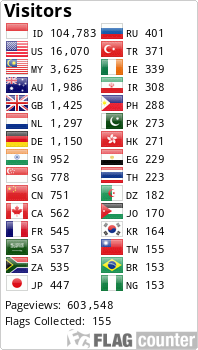FEMINISM ANALYSIS OF THE TRADITION OF THE JAMASAN PUSAKA TOMBAK KANJENG KYAI UPAS IN TULUNGAGUNG REGENCY
 Abstract views: 367
,
Abstract views: 367
,
 PDF downloads: 372
PDF downloads: 372
Abstract
ABSTRACT
The Jamasan Heirloom tradition is an activity that is inherent in the community, namely an activity of purifying heirlooms or relics of previous ancestors. This study will review the Jamasan Heirloom tradition in Tulungagung district starting from how this tradition runs, how the procedure is carried out, and discusses why this procession can only be done and seen by men only. The role of patriarchy is very visible in this Jamasan Heirloom tradition compared to the role of women or feminists. Feminist theology will also be involved in research discussions and supported by several feminist warrior figures. A phenomenological approach is used in this work to examine social phenomena using critical analysis. Based on field observations, interviews with informants (including people who adhere to the Jamasan tradition and local community leaders), and documentation, this research uses a qualitative descriptive technique. The results of this study indicate that in the Jamasan Heirloom tradition there is injustice or inequality between the roles and status of men and women where women are placed as a second class under men.
ABSTRAK
Tradisi Jamasan Pusaka merupakan suatu kegiatan yang melekat pada masyarakat yaitu suatu kegiatan penyucian benda-benda pusaka atau peninggalan nenek moyang terdahulu. Penelitian ini akan mengulas tradisi Jamasan Pusaka yang ada di kabupaten tulungagung mulai dari bagaimana tradisi Jamasan Pusaka ini berjalan dan bagaimana tata cara prosesinya serta membahas mengapa prosesi ini hanya boleh dilakukan dan dilihat oleh laki-laki saja. Peran patriarki sangat terlihat dalam tradisi Jamasan Pusaka ini dibandingkan peran perempuan atau kaum feminis. Teologi Feminis juga akan disangkut pautkan dalam pembahasan yang didukung oleh beberapa tokoh-tokoh pejuang feminis. Pendekatan fenomenologis digunakan dalam karya ini untuk mengkaji fenomena-fenomena sosial dengan menggunakan analisis secara kritis. Berdasarkan observasi lapangan, wawancara dengan informan (termasuk masyarakat yang menganut tradisi jamasan dan tokoh masyarakat setempat), serta dokumentasi, penelitian ini menggunakan teknik deskriptif kualitatif. Hasil penelitian ini menunjukkan bahwa dalam tradisi Jamasan Pusaka terdapat ketidak adilan atau ketidak setaraan antara peran dan status laki-laki dengan kaum perempuan di mana perempuan diletakkan sebagai second class di bawah laki-laki.
Downloads
References
Ackermann, Denise. "Rosemary Radford Ruether: Themes From the Feminist Liberation Story." Scriptura: Journal of Biblical Hermeneutics, Theological And Contextual 4, no. 1 (2008): 42. https://scriptura.journals.ac.za/pub/article/view/712.
Fig. "Feminist BC Theology Professor Mary Daly Dies." Associated Press. New York, January 2010.
Beliharz, Peter. Social Theory: A Guide to Central Thinkers. Yogyakarta: Student Library, 2003.
Bressler, Charles E. Literary Criticism: An Introduction to Theory and Practice 4th-Ed. UK: Pearson Education Inc., 2007.
Cross, FL The Oxford Dictionary of The Christian Church. New York: Oxford University Press, 1995.
Fox, Thomas C. “Mary Daly, Radical Feminist Theologian, Dead at 81.” National Catholic Reporter. New York, January 2010.
Gamble, Sarah. The Routledge Companion to Feminism and Postfeminism. London: Routledge, 2006.
Humasta. "Jamasan Spear Kanjeng Kyai Upas." UM Malang, 2017.
Johnson, Elizabeth A. Christology in the Eyes of Feminists: A Renewal Wave in Christology. Yogyakarta: Kanisius, 2003.
Karen. “Theologization” of Psychology and 'Psychologization' of Religion: How Do Psychology and Religion Supposedly Contribute to Prevent and Overcome Social Conflicts?” Procedia Environmental Sciences 20, no. 11 (2014): 516–525. https://doi.org/10.1016/j.proenv.2014.03.064.
Maini Trisna Jayawati, Atisah, Ni Nyom and Subardini. Folklore and Tourism Objects in Indonesia. Jakarta: Language Center of the Ministry of National Education, 2003.
Margalite. “Mary Daly, a Leader in Feminist Theology, Dies at 81.” The New York. New York, 2010.
Priambadi, Kabul, and Abraham Nurcahyo. "The Jamasan Heritage Tradition in Baosan Kidul Village, Ponorogo Regency (Study of Cultural Values and Historical Learning Resources)." PGRI Madiun University, 2018.
Purboningsih, Ayu Yulia. "Conservation of Moral Values Through the Tradition of the Jamasan Tombak Heirloom of Kyai Upas in Tulungagung Regency." Malang State University, 2012.
Rahman, M. "Understanding the Jamasan Pusaka, the Tradition of the Month of Suro on the Island of Java." Kompas.com., 2019. https://www.kompas.com/tren/read/2019/09/01/080810565/memahami-jamasan-pusaka-nasional-bulan-suro-yang-ada-di-island-jawa ?page=all.
Saputro, Febby. "The Role of Youth in Preserving the Moral Values of Javanese Cultural Arts in Sekoto Village, Badas District, Kediri Regency." UM Malang, 2018.
Suriani, Irma. "The Existence of Women in Patriarchal Culture in Javanese Society in Wonorejo Village, Mangkutana District, East Luwu Regency." UM Malang, 2016.
Taylor, S. J, Bogdan, R. Introduction to Qualitative Research Methods. New York: Oxford University Press, 1992.
Tong, Rosemarie Putnam. Feminist Thought: The Most Comprehensive Introduction To The Mainstream Feminist Thought. Yogyakarta: Jalasutra, 2008.



_jpg_700_.png)














